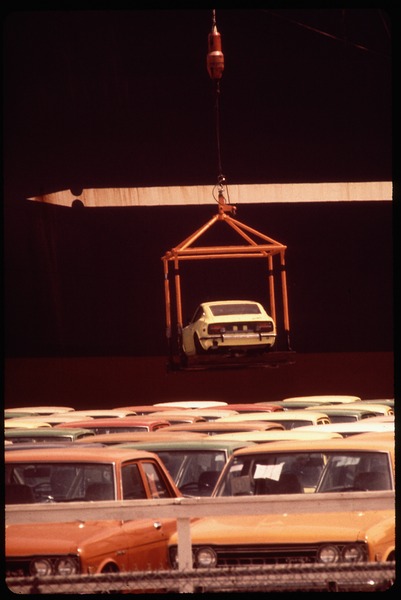Uber and Lyft and the like can go the way of Napster, but the Sharing Economy will still disrupt the taxi sector the way file-sharing did the music industry. It’s not about any one company but the larger wave. In music, it’s been a mixed blessing: The structure of distribution improved greatly, but the content makers themselves were devastated. It may be a similar situation with car service: Summoning a ride with a smartphone and paying without cash is wonderful, though medallion owners may be ruined and a lack of regulation may eventually be painfully costly.
While Uber is currently be playing rough in Los Angeles, that autopocalypse is the American city ridesharing can transform more than any other. From Melena Ryzik in the New York Times:
“Los Angeles — When Ryan O’Connell, 28, moved here from New York last year, he didn’t want a car. ‘I’ve always been so scared of driving,’ he said. ‘I feel like I would be a bad driver.’
Normally, that would be a problem in one of America’s most auto-centric places, where cruising along the Sunset Strip is a lifestyle and cars are not only a means of transportation but a status symbol. But Mr. O’Connell was only briefly perplexed.
‘I didn’t know what I was going to do,’ he said, ‘and then Uber descended from the gods.’
These days, he uses Uber, the smartphone-enabled car service app, as much as three times a day, Mr. O’Connell said the other day, sitting with friends by the rooftop bar at the Ace Hotel Downtown Los Angeles, a popular Uber destination. He takes it from his home in West Hollywood, Calif., to his job, as a writer for the MTV series Awkward in Hollywood, and out for drinks after work. His roommate and best friend has a car, and yet they rely on Uber to get around on weekends.”
Tags: Melena Ryzik, Ryan O’Connell

